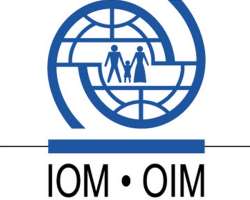Sweden Backs IOM Support for Mobile and Vulnerable Populations in Zimbabwe

GENEVA, Switzerland, February 21, 2014/African Press Organization (APO)/ -- The Swedish International Development Cooperation Agency (SIDA) and IOM Zimbabwe have signed a two-year SEK 20 million (USD 3 million) funding agreement.
The funding will strengthen IOM and the Government of Zimbabwe's capacity to respond to the emergency and humanitarian needs of vulnerable migrants. It will also support transition towards community stabilization and recovery in migration-affected communities.
The vulnerable migrants include returned Zimbabwean nationals from Botswana and South Africa, as well as asylum seekers and economic migrants entering Zimbabwe in mixed migration flows.
The emergency humanitarian aid to vulnerable migrants will include emergency shelter; non-food relief items; emergency health services; water and sanitation; and transport for some returnees, third country nationals and other migration-affected people.
In 2013, in collaboration with the Government of Zimbabwe, IOM assisted over 50,000 returned Zimbabwean nationals from Botswana and South Africa, as well as third country nationals coming to Zimbabwe in mixed migration flows.
During the same period, in collaboration with the government, IOM provided technical and logistical support to local government to facilitate ten participatory, community-based planning processes from which numerous livelihood projects were implemented. Clinics and schools were also constructed in Buhera, Muzarabani, Mhondoro-Ngezi, Makonde and Mt Darwin.
The new funding will support more community-based planning processes, as well as supporting the implementation of follow-up projects.
Over the past decade, SIDA has allocated over USD 24 million to IOM Zimbabwe's emergency humanitarian operations. This has allowed IOM, in collaboration with the government, to reach out to hundreds of thousands of vulnerable people in humanitarian emergencies nationwide.
